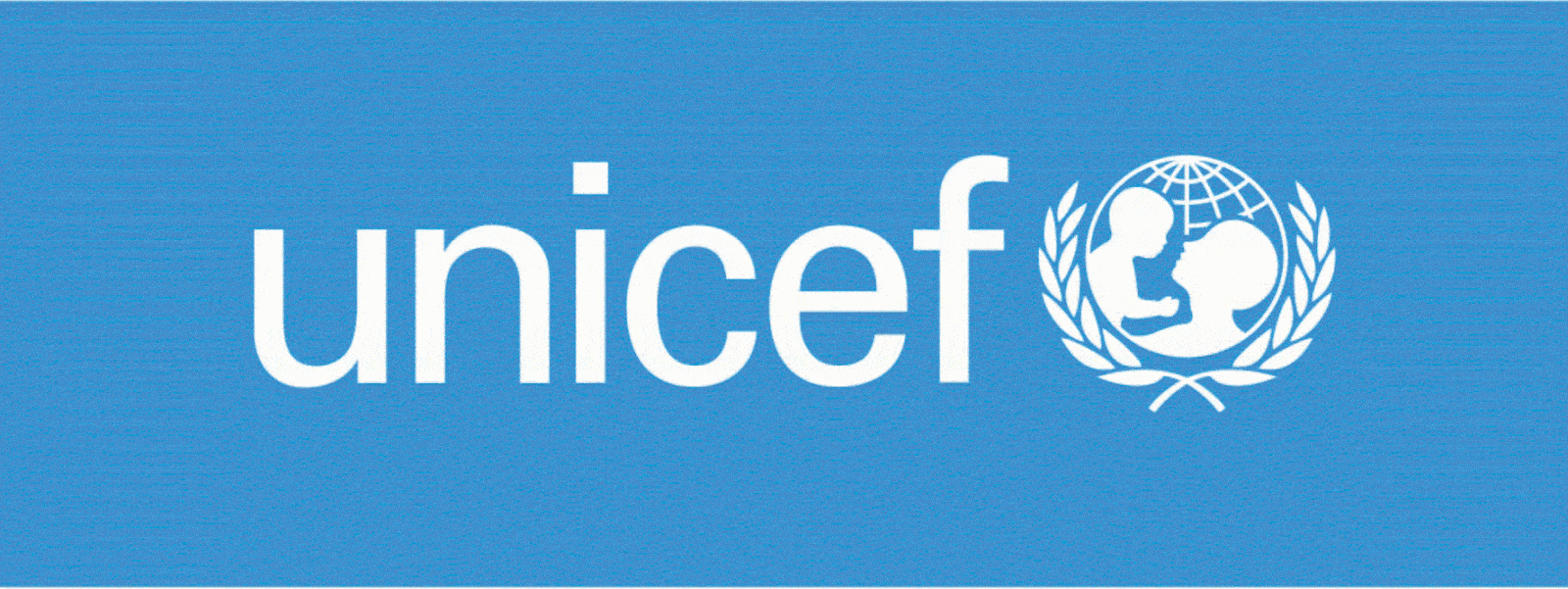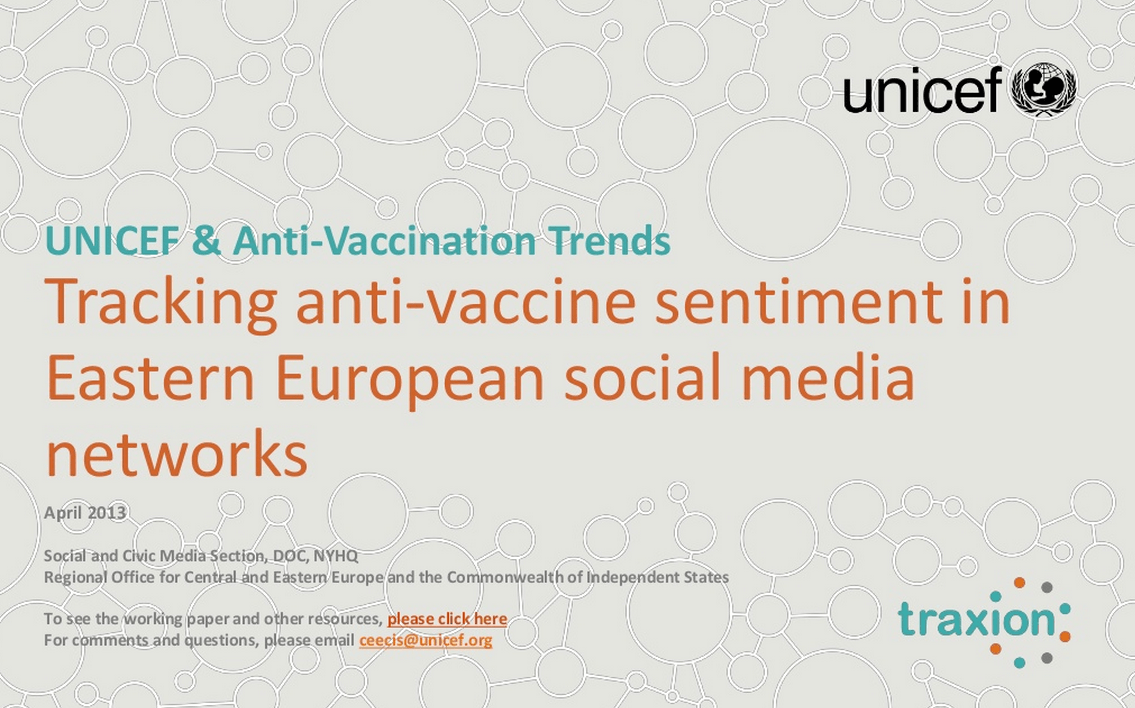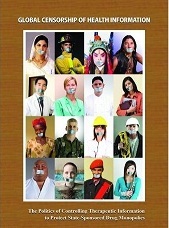UNICEF Surveils, Defames Health Sites Over Vaccines – GreenMedInfo, Mothering.com, Mercola.com, NaturalNews
A stunning new report reveals that the United Nations Children’s Fund (UNICEF) has been monitoring independent health sites and their users in an attempt to identify ‘anti-vaccine influencers’ and their effect on lackluster vaccine uptake.
A newly fashioned United Nations Children’s Fund (UNICEF) working paper tracking “the rise of online anti-vaccination sentiments in Central and Eastern Europe” identifies independent health websites, including GreenMedInfo.com, Mercola.com, NaturalNews.com and VacTruth.com, as contributing to lackluster vaccine uptake.
The UNICEF report, titled “Tracking anti-vaccination sentiment in Eastern European social media networks,” obtained data using “state-of-the-art social medial monitoring tools,” and confirmed that parents are using social media networks to decide whether to vaccinate their children.
Tracking anti vaccine-sentiment in Eastern European social media networks from UNICEF CEECIS
The 47-page report attempts to answer the following questions:
- Why parents are refusing vaccination?
- What are the concerns about vaccines?
- What are their ideals/perceptions?
- Who is influencing the discussion?
- Which networks are being used?
- Where are they located?
- How to respond?
Opening with the Mark Twain quote: “A lie can travel halfway around the world while the truth is putting on its shoes,” the report lists the following ‘anti-vaccine influencers’ shaping the online conversation:
- GreenMedInfo.com
- Mercola.com
- Vactruth.com
- Mothering.com
- Dr. Tenpenny on Vaccines
- Thinking Moms’ Revolution
- The Refusers
- Natural News
- Worldtruth.tv
- Cafemom.com
- VaccineInjury.info
- EverydayHealth.org
- LeftBrain/RightBrain
- Zen Gardner – Just Wondering
UNICEF’s opening reference to the “lie” (misinformation) spread by the above-mentioned web-based organizations indicates that while the document purports to be analytical and descriptive, it has proscriptive and defamatory undertones, and only thinly conceals an agenda to discredit opposing views and voices.
Slide #30 from the PPT presentation of the report.
UNICEF’s derogatory stance is all the more surprising considering that websites such as GreenMedinfo.com aggregate, disseminate and provide open access to peer-reviewed research on vaccine adverse effects and safety concerns extracted directly from the US National Library of Medicine, much of which comes from high-impact journals. [see data set here: vaccine research ]. In turn, websites such as Mercola.com and NaturalNews.com often simply cite the same data and report on its implications.
Labeling research that contradicts or questions the unilateral view that vaccines are always safe and effective, or that their benefits always outweigh their risks, as “anti-vaccine,” or the sites that host or discuss that information “anti-vaccination,” is polemic and disingenuous. Indeed, insofar as many of the sites UNICEF labels as “anti-vaccine” consistently cite peer-reviewed and published research, they risk indicting the credibility of their own global immunization agenda, which is ostensibly based on the same “evidence-based” epistemological model.
Slide #41 from the PPT presentation of the report.
The report’s data-gathering methodology is described as follows:
“Researchers have selected social media channels, languages and formulated key word strings for online searches from 1 May till 30 June 2012. Messages from over 22,300 participants using English, Russian, Romanian and Polish were monitored by volume (using mentions, views, postings), by channels through which users exchange content, by engagement (how users respond, like, share) and by sentiment analysis to detect positive and negative attitudes.”
The authors of the report note ‘ethical considerations’ in gathering and analyzing the web usage behavior and data of 22,300 tracked users, but claim that by not publishing the specific IP data in their report that their work does not break any laws, even if it may violate ‘moral’ codes of those who were subject to uninformed surveillance.
Their main findings are reported:
- In all four languages, blogs are the most frequently used channel followed by Facebook. Twitter is the second largest channel in Russian.
- Most of the interactions are taking place in forums. While female audiences tend to focus on issues such as developmental disabilities, chemical and toxins, and side effects; men focus on arguments around conspiracy theories and religious/ethical beliefs. Participants discussing anti-vaccination sentiments are 56 % female and 44 % male.
- During the observed time period, more messages in English are recorded using key words stemming from conspiracy theories, distrusts against governments and pharmaceutical industry. Religious and ethical beliefs, distrust against U.S. and western governments drive the Russian language discussions.
- Anti-vaccination opinion leaders in the online world show varying characteristics. Some have no college education while others are in the medical field (such as nurses). Often they appear well educated in alternative medicine and subscribe to social channels of homeopaths and alternative medicine advocates.
According to the report: “The study reveals the urgent need to invest further in analyzing vaccine hesitancy, and immunization partners to develop joint strategies to tackle with this trend.”
The report also makes the following recommendations:
“International agencies and other partners will need to combine forces and support governments to reverse this counterproductive trend and develop common strategies to promote immunization, as one of the most successful and cost-effective health interventions known in the world.” [emphasis added]
While this report appears to have the objectivity and credibility long associated with world governmental health agencies, UNICEF does little to conceal its willingness to partner with, and accept money from, corporations who may have a vested interest in discrediting valid information about the unintended, adverse health effects of vaccines and/or their lack of effectiveness, such as manufacturers of vaccines themselves. They openly advertise their willingness to support national- and multi-national corporation’s “cause-marketing initiatives,” a marketing phenomenon widely criticized by public interest groups, and which in the case of the breast cancer industry has produced monstrosities such as the Smith and Wesson’s Pink Handgun, and KFC’s now defunct “Buckets for the Cure.”
As an example of UNICEF’s lack of insulation from conflicts of interest, in June of this year, they partnered with one of the world’s largest vaccine manufacturers, Merck & Co., who pledged $500 million “to decrease maternal mortality, HIV and tuberculosis prevalence in South Africa.” President and CEO of the U.S. Fund for UNICEF Caryl Stern was quoted in a June 2012 Vaccine New Daily article as saying, “Merck is a valued partner that is helping to bring us closer to a day when ZERO children die of preventable causes.”[1] Merck, while being considered by UNICEF as a “valuable partner,” can hardly be claimed as a credible source of information on the safety and effectivencess of its products, as exemplified by the 2011 decision by the U.S. Justice Department that Merck would be forced to pay $950 million to resolve criminal charges and federal civil claims associated with the fraudulent marketing of its deadly drug Vioxx. This is only the tip of the iceberg of Merck’s many legal problems. Learn more here.
Another organization UNICEF has partnered with and accepted substantial financial contributions from is the Bill & Melinda Gates Foundation, who has actively supported the online surveillance of so-called “anti-vaccine” groups, as we documented in an Aug. 29th, 2012, report: “Gates Foundation Funds Surveillance of Anti-Vaccine Groups“:
[A]$100K grant was recently disbursed to Seth C. Kalichman, professor at the Department of Psychology, University of Connecticut, for “Establishing an Anti-Vaccine Surveillance and Alert System,” which intends to “establish an internet-based global monitoring and rapid alert system for finding, analyzing, and counteracting misinformation communication campaigns regarding vaccines to support global immunization efforts.”
The Gates foundation is notorious for focusing its charitable contributions on Global Polio Eradication initiatives, while neglecting to emphasize with equal fiscal enthusiasm sustainable solutions to preventing morbidity and mortality associated with infectious disease vectors, namely, improved nutrition, sanitation and hygiene.
Ironically, UNICEF’s own vaccine-based programs to combat child deaths from disease in West Africa appear to reduce survival relative to areas outside the reach of their programs. According to a 2010 BBC News report, “Unicef spent $27m (£17m) rolling out vaccinations, vitamin A pills and bed nets to protect against malaria from 2001 to 2005 in areas of 11 countries. The researchers studied parts of Ghana, Mali and Benin and said children often survived better outside the UN scheme.” Indeed, the most well-known criticism of UNICEF is that it has done very little to decrease child mortality (in sub-Saharan Africa it has actually increased) underscoring why its focus on promoting vaccination, and now monitoring and perhaps targeting “anti-vaccine” organizations, is profoundly misguided.
Ultimately, UNICEF’s new report is more than an objective analysis of so-called “anti-vaccine” organizations, but a concerning bit of propaganda aimed at dissuading the millions who visit alternative health sites daily from obtaining information that was not underwritten and/or ghostwritten by the very industries who stand to gain most by hiding the well-known adverse health effects of their products, and who have managed to transform many governmental health agencies – and we can see, even global ones — into their cheerleading, marketing, liability protection and now surveillance divisions.
Tracking anti vaccine-sentiment in Eastern European social media networks from UNICEF CEECIS
Read the full article here: http://www.greenmedinfo.com/blog/unicef-surveils-defames-health-sites-over-vaccines-greenmedinfo-motheringcom
References
[1] Vaccine News Daily, Merck for Mothers contributes to UNICEF’s South African efforts, June 4th, 2013
Global Censorship of Health Information
The Politics of Controlling Therapeutic Information to Protect State-Sponsored Drug Monopolies
by Attorney Jonathan Emord
Free Shipping available!








